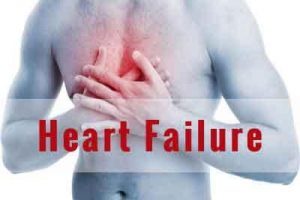- Home
- Editorial
- News
- Practice Guidelines
- Anesthesiology Guidelines
- Cancer Guidelines
- Cardiac Sciences Guidelines
- Critical Care Guidelines
- Dentistry Guidelines
- Dermatology Guidelines
- Diabetes and Endo Guidelines
- Diagnostics Guidelines
- ENT Guidelines
- Featured Practice Guidelines
- Gastroenterology Guidelines
- Geriatrics Guidelines
- Medicine Guidelines
- Nephrology Guidelines
- Neurosciences Guidelines
- Obs and Gynae Guidelines
- Ophthalmology Guidelines
- Orthopaedics Guidelines
- Paediatrics Guidelines
- Psychiatry Guidelines
- Pulmonology Guidelines
- Radiology Guidelines
- Surgery Guidelines
- Urology Guidelines
High-Dose Iron Pills Do Not Improve Exercise Capacity for Heart Failure: JAMA Study

Among patients with a certain type of heart failure and iron deficiency, high-dose iron pills did not improve exercise capacity over 16 weeks, according to a study published by JAMA.
Iron deficiency is present in approximately 50 percent of patients with heart failure with reduced left ventricular ejection fraction (HFrEF; ejection fraction: a measure of how well the left ventricle of the heart pumps with each contraction) and is associated with reduced functional capacity, poorer quality of life, and increased mortality. Although results of intravenous iron repletion trials in iron-deficient heart failure patients have been favorable, regularly treating patients intravenously is expensive and poses logistical challenges. The effectiveness of inexpensive, readily available oral iron supplementation in heart failure is unknown. Gregory D. Lewis, M.D., of Massachusetts General Hospital, Boston, and colleagues randomly assigned 225 patients with HFrEF and iron deficiency to receive oral iron polysaccharide (n = 111) or placebo (n = 114), 150 mg twice daily for 16 weeks.
The researchers found that the primary measured outcome, change in peak oxygen uptake (reflects mechanisms by which iron repletion is expected to improve systemic oxygen delivery and use) from study entry to 16 weeks did not significantly differ between the two groups. There were also no significant differences between treatment groups in changes in 6-minute walk distance.
Several limitations of the study are noted in the article, including that it was not powered to detect differences in clinical events or safety end points.
“These results do not support use of oral iron supplementation in patients with HFrEF,” the authors write.

Disclaimer: This site is primarily intended for healthcare professionals. Any content/information on this website does not replace the advice of medical and/or health professionals and should not be construed as medical/diagnostic advice/endorsement or prescription. Use of this site is subject to our terms of use, privacy policy, advertisement policy. © 2020 Minerva Medical Treatment Pvt Ltd